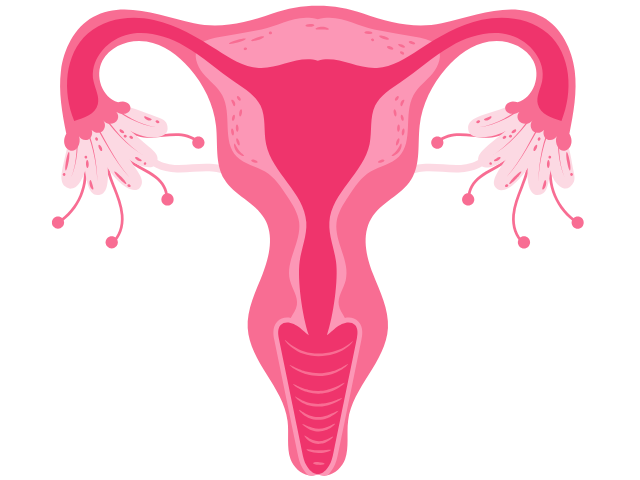Hysterectomy is a surgical procedure to remove the uterus, often recommended for conditions like fibroids, endometriosis, or cancer. At KK Virat Hospital, our expert gynecologists use advanced techniques to ensure patient safety, faster recovery, and improved quality of life. Learn about the types, benefits, risks, and recovery process here.
What is Hysterectomy?
Hysterectomy is a surgical procedure to remove a woman’s uterus, often recommended for conditions like fibroids, endometriosis, chronic pelvic pain, and certain cancers. This procedure permanently stops menstruation and pregnancy. At KK Virat Hospital, our skilled gynecologists use advanced techniques to ensure patient safety, minimal discomfort, and a faster recovery.

Types of Hysterectomy
The type of hysterectomy performed depends on the patient’s condition and medical history. The main types include:
Total Hysterectomy with Bilateral Salpingo-Oophorectomy: Removal of the uterus, cervix, ovaries, and fallopian tubes, often performed for patients with a high risk of ovarian cancer.
Total Hysterectomy: Removal of the uterus and cervix. This is the most common procedure.
Partial (Supracervical) Hysterectomy: Removal of the upper part of the uterus, leaving the cervix intact.
Radical Hysterectomy: Removal of the uterus, cervix, surrounding tissues, and part of the vagina, mainly for cancer treatment.
Diagnosis Before Hysterectomy
Before recommending a hysterectomy, doctors at KK Virat Hospital conduct comprehensive evaluations, including:
- Biopsy: If cancer is suspected, a tissue sample is taken for analysis.
- Medical History: Assessment of symptoms such as heavy menstrual bleeding, pelvic pain, and fibroids.
- Physical Examination: A pelvic exam to check for abnormalities like cysts or tumors.
- Imaging Tests: Ultrasound or MRI to evaluate the size and location of fibroids or endometriosis lesions.
Hysterectomy Procedure
The hysterectomy procedure varies based on the patient’s condition. It includes:
Preoperative Preparation: Patients undergo medical evaluations, imaging tests, and consultations regarding the type of hysterectomy and surgical approach.
Anesthesia: General or regional anesthesia is administered based on the surgical method.
Surgical Techniques:
- Abdominal Hysterectomy: The uterus is removed through an incision in the abdomen.
- Vaginal Hysterectomy: The uterus is removed through the vagina, leading to faster recovery.
- Laparoscopic Hysterectomy: Minimally invasive surgery using small incisions and a camera-guided technique.
Closure and Recovery: The incisions are closed with sutures, and post-surgery monitoring begins.
Who is the Right Candidate for Hysterectomy?
A hysterectomy may be recommended for women experiencing:
- Severe fibroids causing excessive bleeding and pain.
- Endometriosis leading to chronic pelvic pain.
- Uterine or cervical cancer.
- Uterine prolapse, where the uterus shifts from its normal position.
- Persistent abnormal bleeding not responsive to other treatments.
Benefits of Hysterectomy
Hysterectomy offers several health benefits, including:
- Relief from chronic pain and heavy menstrual bleeding.
- Treatment and prevention of cervical, uterine, or ovarian cancer.
- Elimination of conditions like uterine prolapse and fibroids.
- Improved quality of life with long-term symptom relief.
How to Prepare for Hysterectomy?
To ensure a smooth surgical experience, patients should:
- Consult with a gynecologist for a complete medical evaluation.
- Undergo necessary tests such as blood work and imaging.
- Discuss medication adjustments with the doctor.
- Follow a healthy lifestyle, including a balanced diet and quitting smoking before surgery.
- Arrange post-surgery assistance at home.
Recovery and Post-Surgery Care
Recovery time varies depending on the type of hysterectomy performed:
- Vaginal or laparoscopic hysterectomy: Recovery takes 2-4 weeks.
- Abdominal hysterectomy: Recovery takes around 6-8 weeks.
Post-surgery care tips:
- Follow medical advice on medications and wound care.
- Avoid heavy lifting and strenuous activities for a few weeks.
- Watch for symptoms like excessive bleeding, fever, or severe pain and consult a doctor if needed.
- Seek emotional support if experiencing mood changes due to hormonal shifts.
Potential Risks and Complications
Although generally safe, hysterectomy carries some risks:
- Surgical complications such as bleeding or infection.
- Early menopause if the ovaries are removed.
- Pelvic organ prolapse or urinary incontinence in some cases.
- Changes in sexual function, though many experience improved satisfaction post-surgery.
Advantages and Disadvantages of Hysterectomy
Advantages:
- Permanent relief from severe menstrual bleeding and pain.
- Effective treatment for gynecological cancers.
- Can eliminate risk of future uterine and ovarian diseases.
- Minimally invasive techniques allow quicker recovery and less scarring.
Disadvantages:
- Loss of fertility, which can be emotionally challenging.
- Risk of post-surgery complications like infections or pelvic issues.
- Potential need for hormone replacement therapy (HRT) if ovaries are removed.
Why Choose KK Virat Hospital for Hysterectomy Treatment?
Choose KK Virat Hospital for hysterectomy treatment in Karimnagar for expert gynecologists, advanced technology, personalized care, and a patient-friendly environment, ensuring safe, effective, and comfortable surgical procedures with optimal recovery.
Book Your Appointment Today
For expert Hysterectomy treatment in Karimnagar, visit KK Virat Hospital. Book a consultation today for personalized treatment options!
- Call Us Directly: Get in touch with our medical coordinators to schedule an appointment with an expert Gynecologist.
- Direct Visit: You can visit our hospital directly by carrying your previous medical records if you have a medical history. However, admission will be based on the doctor’s recommendation.
Are there different alternatives to the hysterectomy procedure?
Yes, at KK Virat Hospital, Karimnagar, we offer alternatives like medications, hormonal therapy, endometrial ablation, uterine artery embolization, and myomectomy. Our expert gynecologists assess your condition to recommend the best treatment.
Can one conceive after undergoing a hysterectomy surgery?
No, pregnancy is not possible after a hysterectomy as the uterus is removed. At KK Virat Hospital, Karimnagar, we provide counseling on options like surrogacy or egg freezing before surgery for those considering future parenthood.
Will removal of the uterus during hysterectomy trigger menopause?
If the ovaries are also removed (total hysterectomy with oophorectomy), menopause occurs immediately. If ovaries are retained, hormonal changes may be minimal. Our specialists at KK Virat Hospital guide you on managing any post-surgery changes.
How long does it take to recover from uterus removal surgery?
Recovery varies depending on the type of hysterectomy. At KK Virat Hospital, Karimnagar, we ensure personalized post-operative care. Vaginal or laparoscopic hysterectomy may take 4–6 weeks, while abdominal hysterectomy may require 6–8 weeks for full recovery.
How will my life change after a hysterectomy?
Many women at KK Virat Hospital experience relief from heavy bleeding and pelvic pain post-surgery. Our gynecology experts provide guidance on managing hormonal changes, emotional well-being, and lifestyle adjustments for a smooth transition.
Can I still have sexual intercourse after a hysterectomy?
Yes, most women can resume sexual activity after full recovery, typically within 6–8 weeks. At KK Virat Hospital, Karimnagar, we offer post-surgical counseling to address concerns about intimacy and comfort.
Can a woman still get cervical cancer after a hysterectomy?
If the cervix is removed (total hysterectomy), the risk of cervical cancer is eliminated. If the cervix remains (subtotal hysterectomy), regular screenings are necessary. KK Virat Hospital offers preventive screenings and follow-up care.
How can one emotionally cope with hysterectomy surgery?
Emotional well-being is a priority at KK Virat Hospital, Karimnagar. We provide counseling, support groups, and relaxation techniques to help patients adjust to the physical and emotional aspects of the surgery.
Can I eat normally after a hysterectomy surgery?
Yes, but we recommend a light, fiber-rich diet to aid digestion and prevent constipation. Our dietitians at KK Virat Hospital provide customized nutrition plans for faster recovery and overall well-being.
Will I need hormone replacement therapy (HRT) after my hysterectomy surgery?
HRT may be recommended if both ovaries are removed. At KK Virat Hospital, Karimnagar, our specialists evaluate your hormonal needs and suggest appropriate treatments for a healthy post-surgery life.
Do you have to be on bed rest after a hysterectomy?
Complete bed rest is not required. Light activity and short walks help in faster recovery. At KK Virat Hospital, Karimnagar, we guide patients through personalized post-operative care to ensure safe healing and prevent complications.



